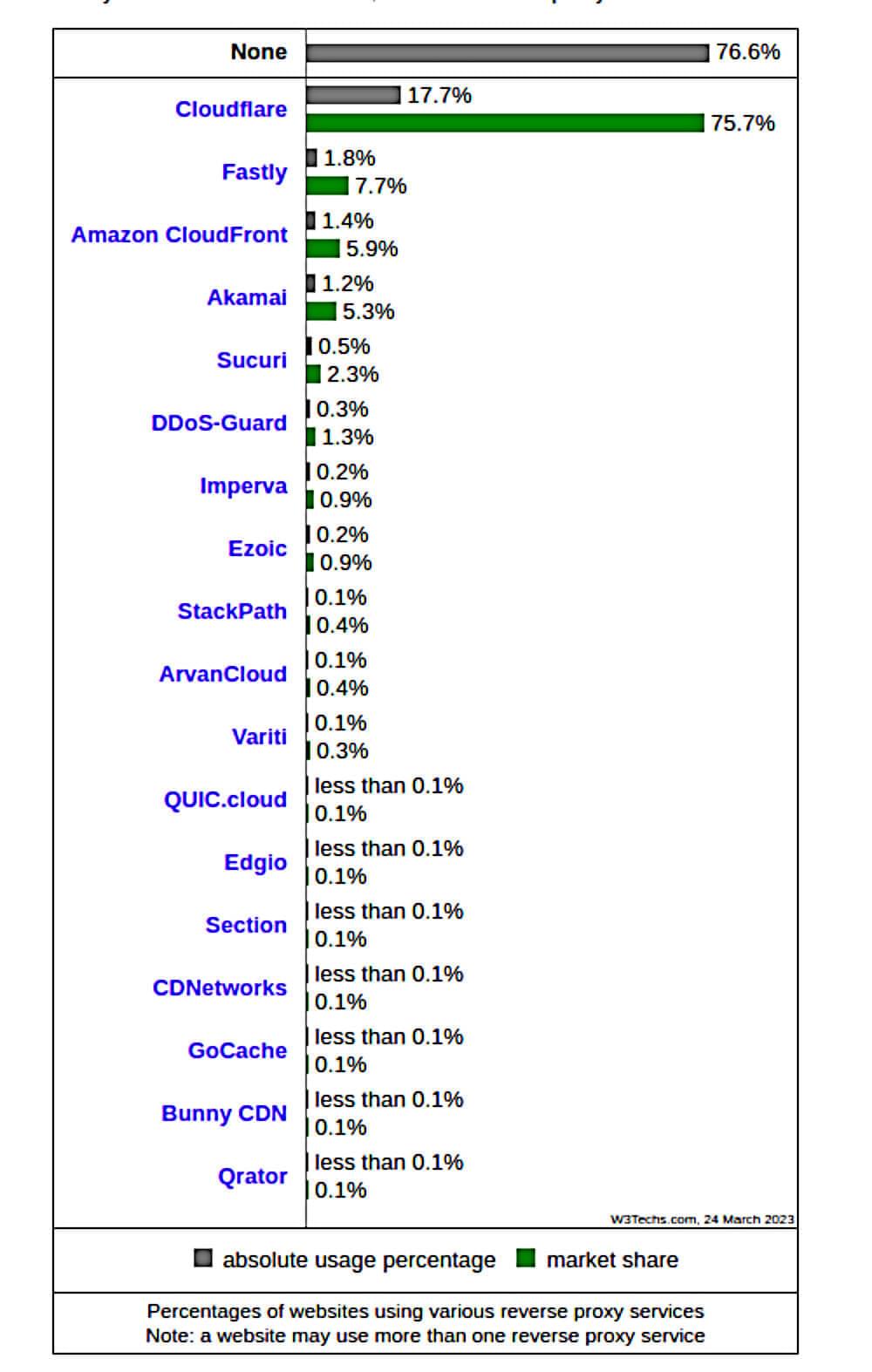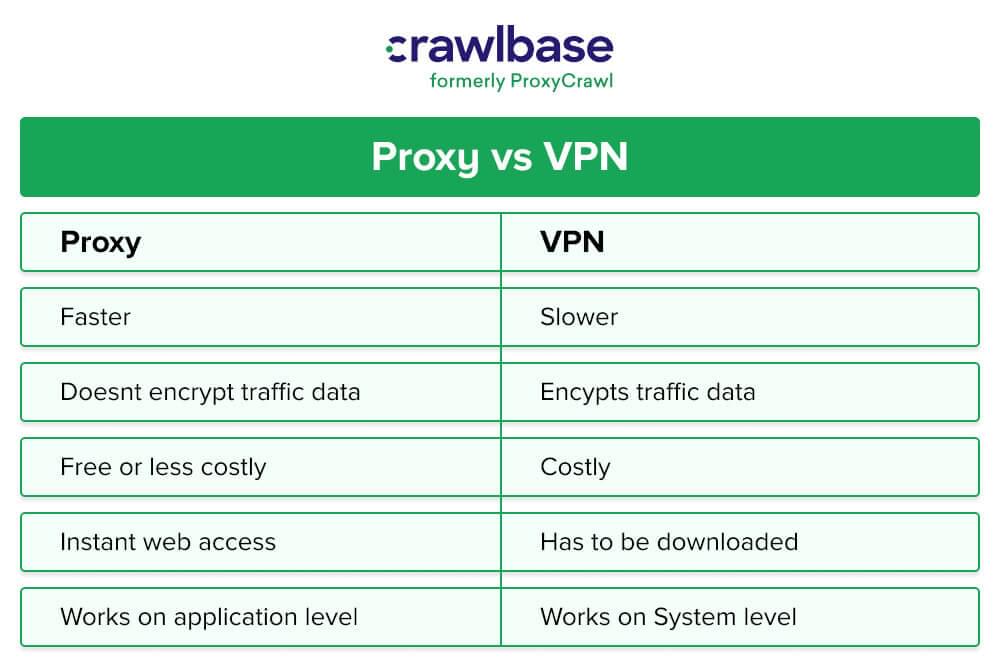Securing our privacies has become a very challenging task for internet users in today’s world of fast-paced-transforming technology. Around 30% of people around the globe have used VPNs once in a while with Asia Pacific being on top of the list. The infinite network of data interconnectivity over the world wide web (WWW) has made it even tougher and more complicated for security officials and organizations alike. They deal with massive critical data of the users like government organizations, security firms, intelligence, protective bureaus, etc., via two of either source’s proxies vs. VPNs.
So, what are VPNs and proxies?
Are proxies and VPNs the same? Proxies and VPNs are not the same, although they both serve as intermediaries between a client device and the Internet.
The proceeding section of this article will discuss in-depth insights into the usage, characteristic features, functionalities, and operational implementation of proxies vs. VPNs. But before that, let us briefly understand the terms proxies vs VPNs.
Cracking the Term “Proxies”
Proxies are basically servers that work as an intermediary layer of networking or the middle layer between the two users on the Internet.
Proxy servers act like request carriers who await requests generated from within the firewall client. As soon as it gets the request from the client, it transfers it to the remote server to fetch the required response. When the server receives that response, it hurriedly sends it back to the user who has generated that particular request.

There are a several types of proxies that we will compare with VPN.
- Reverse Proxy vs. VPN
Reverse proxy servers direct client requests to the appropriate backend server behind the firewall in a private network. Reverse proxy ensures smooth network traffic between clients and servers by providing an additional abstraction layer and control. Let’s have a look at VPN vs. reverse proxy.
The purpose of reverse proxies and VPNs differs. Reverse proxies provide additional security and performance for back-end servers, while VPNs provide secure and private access for client devices. According to W3Techs, more than 17% if websites on the internet use Cloudflare’s reverse proxy servers to protect their websites from malicious activities.

- Anonymous Proxy vs. VPN
Anonymous proxy hides an anonymous proxy client’s IP address and other relevant details that make it impossible for web servers to judge a client’s identity. A proxy server forwards requests while masking client IP addresses to web servers. VPNs and anonymous proxy servers protect privacy and anonymity.
However, both anonymous proxies and VPNs have differences in the level of details that are big when considered for different scenarios. Though anonymous proxies can hide the user’s IP addresses to provide some anonymity but they need to be better at the privacy and security that the VPNs provide. VPNs are also helpful in encrypting the online activities of the user and bypassing geo-restrictions in a snap.
- Forward Proxy vs. VPN
Forward proxies act as intermediaries between multiple client devices and the websites’ servers that the clients access. Whenever client devices like web browsers use forward proxy to layer their requests to the website they want to access. Website servers then respond to the requests to the forward proxy which then send the same to the client. This acts as a way of maintaining security and enhancing performance not just for the clients but also for web servers.
But, individuals who are conscious about their privacy tend to use VPN to have a private web browsing experience. VPN and forward proxy hugely different. Where forward proxies enhance security and performance in various environments, the use of VPNs is to encrypt online activity and hide the user’s IP address.
- DNS Proxy vs. VPN
Proxies forward DNS requests from client devices to DNS servers. On the Internet, DNS translates domain names into IP addresses, which web servers use to communicate and identify themselves.
DNS proxies and VPNs serve different purposes. The DNS proxy improves performance, security, and website access, while the VPN hides the user’s IP address and encrypts all online activity. As per the data analysis by W3Techs, over 14% of the websites use Cloudflare’s DNS servers.
- HTTP Proxy vs. VPN
An HTTP proxy server handles HTTP requests and responses between client devices and web servers. On the web, HTTP transfers data from one device to another via the Internet.
HTTP proxy and VPN serve different purposes. HTTP proxy servers can improve performance and security, filter unwanted traffic, and allow corporate networks to control internet access. In contrast, a VPN encrypts all online activity and hides the user’s IP address to provide higher levels of privacy and security.
Read more on: Http vs Https proxies
Decoding the VPNs (Virtual Private Networks)
A VPN is a networking security framework developed over physical networks. It provides strict security for the IP data transmission between the network servers. You can use VPNs to communicate data via a protected communication mechanism securely.
Types of VPN Protocols
A VPN uses tunneling protocols to send data. Each of these methods has a direct impact on the speed and security of the process. Here are some of the most popular ones.
- Open VPN
Many VPN providers use OpenVPN, a very secure protocol. You can inspect the code for vulnerabilities since it’s open-source. This encryption method has a lot of flexibility, so you can use it for various purposes. Moreover, it is capable of bypassing most firewalls.
- Secure Socket Tunneling Protocol (SSTP)
Almost all modern Microsoft devices support this VPN protocol. Most firewalls can’t block it, and it’s encrypted with AES-256, which means it’s very secure. Developers cannot access the code because Microsoft owns it. Users may not be aware of vulnerabilities.
- Internet Key Exchange Version 2 (IKEv2)
The IKEv2 protocol establishes a secure connection to your network through authentication and encryption. Because it’s stable, you can use it even when switching between internet connections, so it’s ideal for mobile VPNs. It’s also fast and secure.
Proxy Server vs VPN Server

Proxy server and VPN server, both hide client’s IP addresses and provide users security, privacy, and performance benefits. So what is the difference between VPN and a proxy? A VPN and a Proxy server are not alike. Proxy server does not encrypt traffic while VPN encrypts traffic on operating level. They also function differently and serve different purposes. I have discussed the differences between proxy and VPN below.
IP is your identity, like your identity, residential address, online activities, etc. A proxy’s function is to mask this information from online users. When your request a certain website on the internet, the request is sent to your Internet Service Provider or ISP, which then retrieves your IP address based on your request off the internet and gives it to the client-server which gives back access to your desired website.
Proxy Server develops the exchange between your ISP and the website you want to access. The ISP provides the IP of your proxy server rather than the IP of your device. Therefore, it is like your proxy visits the website, not you.
A VPN works closely to how proxy servers work, except instead of working with one website or app, they work with every site and app you access. When you visit a website through a VPN, it hides your IP address and replaces it with the service provider’s IP address. This protects your identity. Free VPN providers allow you to access the Internet. Data sharing is less likely among VPN providers who charge.
The best thing about VPN is that it conceals your IP address and encrypts all the data between you and the website, which is the main difference between a proxy and a VPN. With an associated IP address, you can designate a proxy server with another country. In this way, you may appear like you are in that country which gives you access to all the content of the computers in that country.
You can use VPNs to limit the browsing access of the organization’s employees. This will increase their efficiency while at work because they can focus more and perform well. So, during working hours, they may save time visiting inappropriate or deviating sites. In this way, the organization can enhance its productivity and revenue ultimately.
Features of Proxies vs VPNs
There are many benefits of VPNs and proxies. I have discussed the main features below.
VPNs Features
- Information Encryption
The most beneficial feature of a VPN is data encryption. It helps you get protected from any threat like hackers, different businesses, government firms, or anyone else. All the data will encrypt the Browsing that you send or receive. No one will be able to see what you are doing online.
- Online Privacy Enhancement
VPN is your tunnel to another part of the network and is completely private with a no-log policy. That means ensuring that whatever you do on the internet will not be tracked, monitored, or stored by the VPN provider. But, a free proxy may watch and sell data to a third party.
- Gain More Flexibility with Purchased VPN
Public VPNs are available for everybody to use but it is highly recommended to use ones that are paid because that’s how they maintain their systems and run it securely while maintaining your privacy.
Free VPNs are available if you want to connect. However, experts recommend a VPN provider that charges a fee because paid services are more secure and beneficial for data privacy.
Security with public VPNs or free VPNs can be unreliable because multiple providers use only one connection PTTP (Point-to-point tunneling protocol). At the same time, Paid VPN provides more reliable data encryption.
Features of Proxies
- Security Enhancement
Proxy is a server between your device and the website that you want to access to make sure your entire experience is secure, private and efficient. Else, there will be hackers easily accesing the data through your IP address and penetrate your device or network.
- Private Browsing History
Using multiple proxies helps you save from getting overwhelmed by unwanted ads or a group of specific IP data.
- Overcoming Geo-Restrictions
Users can easily access content blocked in their country or region by bypassing geo-restrictions.
Usage of Proxies vs VPNs
Usage of Proxies
VPNs are more secure than proxies but are still in drift. Using these tools have its benefits. You can use a proxy for the following purposes:
- Imitating Public IP Address
Whether you want to mask your IP address to get some privacy or get rid of any online tracking, the proxy best would serve this purpose. You can easily swap your IP address without interfering with any technical settings.
- Content Access from Different Locality
Like VPNs, you can also access content from different locations through proxies. Well, a proxy is not strong enough to diversify the limit of your access to the Internet.
So, that would cause difficulty in accessing the intentionally occlude content. Although, proxies perform very well for quick tasks. For instance, If you want to know the local news from anywhere, you can change your online location using a proxy.
- Transpose Location Without Any Cost
The available proxy services, especially for individual use, are primarily cost-free. Although hundreds of locations are not present for free, four to five different locations are available. Hence, a proxy is the best tool to use if you want to hide your IP address for the time being.
Usage of VPNs
VPN has many benefits and has become so in demand nowadays. Some of the reasons why you should use a VPN are as follows;
- Secure Unsafe Data
You can use VPNs to secure your private information from cybercriminals like your bank details, private messages, emails, passwords, etc. For this purpose, these criminals need a link, an unprompted or unwanted cookie, or an email. VPNs apply Advanced Encryption Standards (AES) to encrypt all your data through your network.
- Access the Location Limited Content
Popular streaming websites like Netflix, Amazon Prime, Hulu, HBO Max, etc limit to who and where to give content access. They have made things in a way such that part of their content is available to some viewers and part of it is not. Therefore, some of the content may be viewable by others and restricted for you to consider.
You would also see on some of the videos on Youtube that it says that the video is unavailable in your country. This might be due to the content creator making it available to certain regions. However, with the use of a VPN, you can easily unblock that video by masking your IP address with that of the VPN server in the regions where the video is available.
- Enhance Network Speed
Encryption and decryption of a VPN can minimize the speed of your network. But you can speed up your network if your ISP (Internet Service Provider) throttles your bandwidth. It means that ISP willingly slows down the speed of your network in order to speed up the network slowdown or regulate the speed across the network. So, VPN can hide your viewing content from your ISP; in that way, ISP can’t throttle your Internet connection and cannot restrict your internet bandwidth.
Which One To Choose, A Proxy Server Or VPN?
As we have discussed the differences between VPNs and proxies, choosing which is best for you may be easy. Suppose you want to mask your IP address; both VPN and a proxy server work well. But if you wish to hide your IP address from a particular website and worry about your slow browsing speed, then the proxy server is best for you.
If you worry about cost, which is better, proxy or VPN? It will be better to choose an accessible proxy server that will hide your IP address from four to five different sites or apps. However, if you want to hide your browsing activities, VPN is the better option. Because VPN encrypts your data when you are online while a proxy doesn’t.
Differences between both a proxy and a VPN make both of them distinctive in their own way. For securing your data, a VPN may be the most reliable and efficient way. VPN is useful if you want access to multiple websites online like those of banks, financial management organizations, eCommerce stores, etc, making your private and sensitive data safe from hackers that are always there with the best tools and techniques to get hold of it.
Blocking VPNs and Proxies
Blocking VPNs and proxies can be a challenge as they hide users’ IP addresses and activities on the internet, making them anonymous and providing the utmost privacy they deserve. Sometimes, governments and organizations may attempt to intercept VPNs and proxy servers for various reasons, such as enforcing internet censorship or ensuring network security
To block VPNs and proxies, some methods are as follows:
- IP blocking
- Port blocking
- Application Blocking
FAQ’s
Q: Is VPN A Proxy?
VPNs and Proxies are hugely similar in how they work and dissimilar at the same time. There’s a key difference in how each of them operates. VPNs secure the entire traffic from your device whereas a proxy would probably secure just one device. However, VPNs are generally considered more secure and provide greater privacy and anonymity.
Q: Do You Need a Proxy If You Have A VPN?
No, you do not need a proxy using a VPN. Using a VPN and a proxy simultaneously provides almost similar benefits and both have entirely different purposes. So there is no need to use both simultaneously. It is possible to encounter conflicts when using a proxy with a VPN.
Q: Can I Use A Proxy And VPN Together?
Though using a proxy and VPN together is possible but not recommended. Using both simultaneously can cause conflicts and decrease performance as a result.
it is a better idea to use either a VPN or a proxy, but not both, unless you have a specific reason to do so and are ready to deal with any conflicts or performance issues that may arise with it.
Q: Is VPN Slower Than Proxy?
VPNs can be slower than a proxy because it encrypts and redirects all your internet traffic data via the service provider’s servers. This slows down your connection and increases network latency while a proxy may be faster at connecting you to the internet.
Q: Are Proxies Faster Than VPN?
Since proxy servers are commonly faster than VPNs as they do not have their traffic encrypted, allowing them to connect you to the Internet much faster than VPNs.
Q: Tracking IP Address Behind VPN/Proxy Server?
Whenever users are behind a VPN or a proxy server, it is challenging to track their real IP addresss since they are swapped. This makes the chances of their online activity getting traced close to zero. To further secure your online privacy from other factors, you may try using a secure browser and regularly flush your cookies and browser history.
Q: Is TOR A VPN or a Proxy Server?
TOR, or The Onion Router is an open-source tool that acts as a gateway that is encrypted, anonymous and free to use. A VPN usually encrypts your traffic to and from the internet and your connected device. But TOR is just meant to encrypt and anonymize just that particular traffic that passes through its network. One of the main differences between the two is that TOR directs the traffic through multiple servers rather than one server that acts as an intermediary.
Therefore, TOR provides internet users with a high degree of anonymity and privacy but operates differently than VPNs and proxies.
Q: Which one should you choose?
Your needs and circumstances determine whether to use a proxy or VPN. VPNs are your weapon of choice if higher levels of security and privacy is what you need. A proxy may be better if speed and cost are your top priorities. Your specific needs and circumstances will determine whether you should use a proxy or VPN.
A proxy server like Crawlbase Smart AI Proxy provides both data center and residential proxies to hide your data and send requests on your behalf through rotating ip address. Since this is not a free proxy, this is the best choice to scrape and crawl data anonymously and securely.











